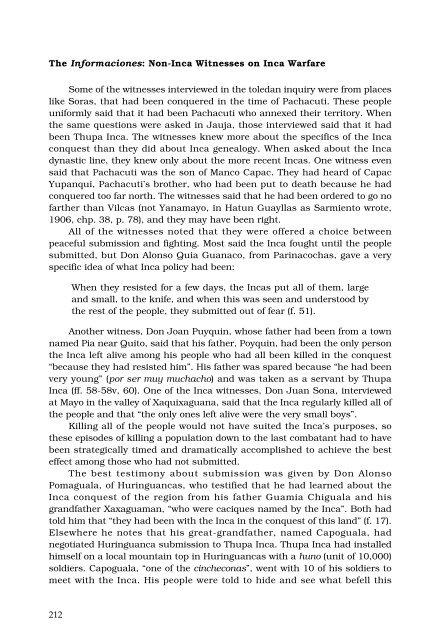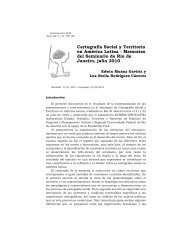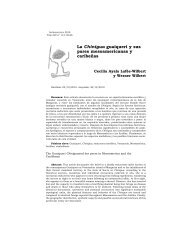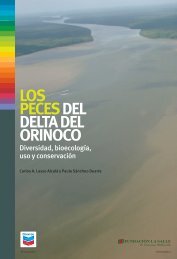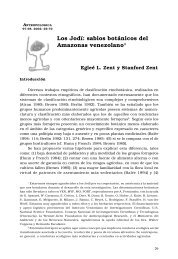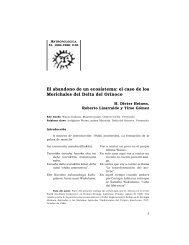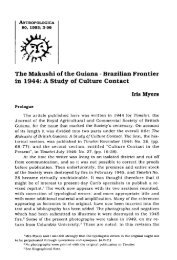War and a Semblance of Peace in the Inca Heartland
War and a Semblance of Peace in the Inca Heartland
War and a Semblance of Peace in the Inca Heartland
Create successful ePaper yourself
Turn your PDF publications into a flip-book with our unique Google optimized e-Paper software.
The Informaciones: Non-<strong>Inca</strong> Witnesses on <strong>Inca</strong> <strong>War</strong>fare<br />
Some <strong>of</strong> <strong>the</strong> witnesses <strong>in</strong>terviewed <strong>in</strong> <strong>the</strong> toledan <strong>in</strong>quiry were from places<br />
like Soras, that had been conquered <strong>in</strong> <strong>the</strong> time <strong>of</strong> Pachacuti. These people<br />
uniformly said that it had been Pachacuti who annexed <strong>the</strong>ir territory. When<br />
<strong>the</strong> same questions were asked <strong>in</strong> Jauja, those <strong>in</strong>terviewed said that it had<br />
been Thupa <strong>Inca</strong>. The witnesses knew more about <strong>the</strong> specifics <strong>of</strong> <strong>the</strong> <strong>Inca</strong><br />
conquest than <strong>the</strong>y did about <strong>Inca</strong> genealogy. When asked about <strong>the</strong> <strong>Inca</strong><br />
dynastic l<strong>in</strong>e, <strong>the</strong>y knew only about <strong>the</strong> more recent <strong>Inca</strong>s. One witness even<br />
said that Pachacuti was <strong>the</strong> son <strong>of</strong> Manco Capac. They had heard <strong>of</strong> Capac<br />
Yupanqui, Pachacuti’s bro<strong>the</strong>r, who had been put to death because he had<br />
conquered too far north. The witnesses said that he had been ordered to go no<br />
far<strong>the</strong>r than Vilcas (not Yanamayo, <strong>in</strong> Hatun Guayllas as Sarmiento wrote,<br />
1906, chp. 38, p. 78), <strong>and</strong> <strong>the</strong>y may have been right.<br />
All <strong>of</strong> <strong>the</strong> witnesses noted that <strong>the</strong>y were <strong>of</strong>fered a choice between<br />
peaceful submission <strong>and</strong> fight<strong>in</strong>g. Most said <strong>the</strong> <strong>Inca</strong> fought until <strong>the</strong> people<br />
submitted, but Don Alonso Quia Guanaco, from Par<strong>in</strong>acochas, gave a very<br />
specific idea <strong>of</strong> what <strong>Inca</strong> policy had been:<br />
212<br />
When <strong>the</strong>y resisted for a few days, <strong>the</strong> <strong>Inca</strong>s put all <strong>of</strong> <strong>the</strong>m, large<br />
<strong>and</strong> small, to <strong>the</strong> knife, <strong>and</strong> when this was seen <strong>and</strong> understood by<br />
<strong>the</strong> rest <strong>of</strong> <strong>the</strong> people, <strong>the</strong>y submitted out <strong>of</strong> fear (f. 51).<br />
Ano<strong>the</strong>r witness, Don Joan Puyqu<strong>in</strong>, whose fa<strong>the</strong>r had been from a town<br />
named Pia near Quito, said that his fa<strong>the</strong>r, Poyqu<strong>in</strong>, had been <strong>the</strong> only person<br />
<strong>the</strong> <strong>Inca</strong> left alive among his people who had all been killed <strong>in</strong> <strong>the</strong> conquest<br />
“because <strong>the</strong>y had resisted him”. His fa<strong>the</strong>r was spared because “he had been<br />
very young” (por ser muy muchacho) <strong>and</strong> was taken as a servant by Thupa<br />
<strong>Inca</strong> (ff. 58-58v, 60). One <strong>of</strong> <strong>the</strong> <strong>Inca</strong> witnesses, Don Juan Sona, <strong>in</strong>terviewed<br />
at Mayo <strong>in</strong> <strong>the</strong> valley <strong>of</strong> Xaquixaguana, said that <strong>the</strong> <strong>Inca</strong> regularly killed all <strong>of</strong><br />
<strong>the</strong> people <strong>and</strong> that “<strong>the</strong> only ones left alive were <strong>the</strong> very small boys”.<br />
Kill<strong>in</strong>g all <strong>of</strong> <strong>the</strong> people would not have suited <strong>the</strong> <strong>Inca</strong>’s purposes, so<br />
<strong>the</strong>se episodes <strong>of</strong> kill<strong>in</strong>g a population down to <strong>the</strong> last combatant had to have<br />
been strategically timed <strong>and</strong> dramatically accomplished to achieve <strong>the</strong> best<br />
effect among those who had not submitted.<br />
The best testimony about submission was given by Don Alonso<br />
Pomaguala, <strong>of</strong> Hur<strong>in</strong>guancas, who testified that he had learned about <strong>the</strong><br />
<strong>Inca</strong> conquest <strong>of</strong> <strong>the</strong> region from his fa<strong>the</strong>r Guamia Chiguala <strong>and</strong> his<br />
gr<strong>and</strong>fa<strong>the</strong>r Xaxaguaman, “who were caciques named by <strong>the</strong> <strong>Inca</strong>”. Both had<br />
told him that “<strong>the</strong>y had been with <strong>the</strong> <strong>Inca</strong> <strong>in</strong> <strong>the</strong> conquest <strong>of</strong> this l<strong>and</strong>” (f. 17).<br />
Elsewhere he notes that his great-gr<strong>and</strong>fa<strong>the</strong>r, named Capoguala, had<br />
negotiated Hur<strong>in</strong>guanca submission to Thupa <strong>Inca</strong>. Thupa <strong>Inca</strong> had <strong>in</strong>stalled<br />
himself on a local mounta<strong>in</strong> top <strong>in</strong> Hur<strong>in</strong>guancas with a huno (unit <strong>of</strong> 10,000)<br />
soldiers. Capoguala, “one <strong>of</strong> <strong>the</strong> c<strong>in</strong>checonas”, went with 10 <strong>of</strong> his soldiers to<br />
meet with <strong>the</strong> <strong>Inca</strong>. His people were told to hide <strong>and</strong> see what befell this


